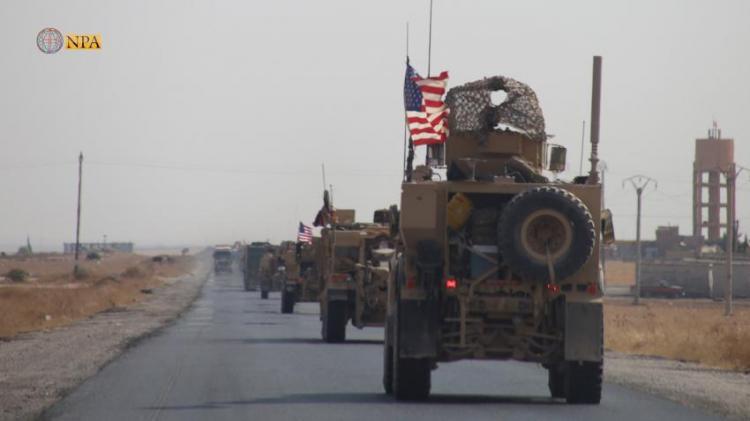Erdogan’s visit to Washington will not change the equation – Analysts
North-Press Agency
A former American diplomat said that the silence of the United States administration about the Turkish military invasion and its affiliated armed opposition groups on north-eastern Syria resulted by the decision taken by the U.S. president unilaterally.
An academic at the Middle East Institute pointed out that the real reason for the silence of the U.S. administration is that the White House is floundering and moving from one position to another without any regards to the views of the institutions or the American interests.
American silence
Nabil Khoury, a former U.S. diplomat told North-Press that the silence of the U.S. administration about what is happening in northern Syria is the result of a decision taken by the United States President Donald Trump personally without consulting anyone, neither the U.S. military, the intelligence, nor even the State Department.
Khouri stressed that President Trump's decision was arbitrary due to his personal interests and his relationship with Russia, that this decision is in line with Vladimir Putin’s, and that there is a strong link between the two presidents. Accordingly, Trump's decision does not take into account either the U.S. security interests nor the interests of the Kurds in northern Syria.
Khoury pointed out that Washington agreed from the beginning on the military operation launched by Turkey on northeastern Syria, and the approval was given after the phone call between Trump and Erdogan.
Khoury also noted that he does not imagine that after all that has happened the United States would take a strong attitude, because the situation today is in Russia's hands, and there is an understanding between Erdogan, Putin and Bashar al-Assad and that is the reality.
Oil fields
Regarding the oil fields, Khoury said that Trump's decision came suddenly even the U.S. administration did not know, but in fact America will not get this oil for its own benefits, but is the issue of the presence of some troops in that region, perhaps to repel possible attacks by the Islamic State. He said: "However, this issue will be resolved when the situation between Russia and Turkey and Syrian President Bashar al-Assad is established, and then Trump will decide what would happens to these fields".
"This American presence is very symbolic and weak in the region and does not mean anything, as the U.S. influence is over," he added, noting that this administration does not think strategically in depth, and when security is established and agreements and deals are reached on the ground, the United States will have no role.”
Regarding Erdogan's visit to Washington, Khoury said: "I do not imagine that Erdogan's visit will change anything in this equation; in the end, this is a consecration of what happened and a demonstration for the public opinion that there is an understanding with Turkey and that U.S.-Turkish relations are at best, and there will be no American influence to rationalize what is happening in northern Syria".
The White House floundered
Dr. Hassan Mneimneh, an academic at the Middle East Institute told North-Press that the real reason for the U.S. administration's silence is that the White House is floundering, and moving from one position to another without regard to the views of the institutions or the U.S. interests.
He also said that the issue doesn't concern Trump, and there is no interest or attention about what is happening in northern Syria, and the reason for his concessions in favor of Turkey is that he is not concerned with the issue, because the interest is related to the issue of the internal elections now.
Regarding the deployment of the U.S. forces in the oil fields, Mneimneh noted: "The president makes arbitrary decisions and institutions seek to mitigate these decisions, so I don't think it's right to read this U.S. move as being made to facilitate something or to achieve something".
Hassan Mneimneh concluded: "I think that Erdogan's visit to Washington is confused on more than one level, and we cannot say that it is a sign of a change in the political stances and nothing can be counted on in this regard.”

